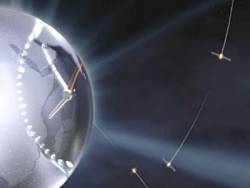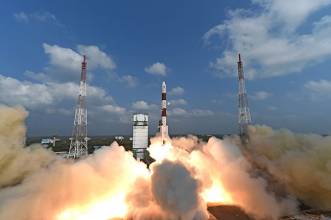Horizon 2020 (H2020), the new incarnation of European Commission–funded research and innovation programs, has issued its first call for applications in satellite navigation.
The relatively modest — €38 million (US$52 million) out of a total of €70 billion (US$92 billion) for the period 2014–2020 — represents an initial round of invitations for R&D proposals that previously were distributed under the framework programs (FPs). The deadline for submitting proposals is April 3, 2014.
Horizon 2020 (H2020), the new incarnation of European Commission–funded research and innovation programs, has issued its first call for applications in satellite navigation.
The relatively modest — €38 million (US$52 million) out of a total of €70 billion (US$92 billion) for the period 2014–2020 — represents an initial round of invitations for R&D proposals that previously were distributed under the framework programs (FPs). The deadline for submitting proposals is April 3, 2014.
Managed by the European GNSS Agency (GSA), the H2020 allocation covers proposals for European GNSS (EGNSS) applications, small- and medium-sized enterprise–based EGNSS applications, “releasing the potential of E-GNSS applications through international cooperation,” and EGNSS awareness raising, capacity building, and promotion activities in and outside of the European Union (EU).
The H2020 program uses simplified rules to provide opportunities for the development of applications (apps) for use with the European Geostationary Navigation Overlay Service (EGNOS) and Galileo Early Services, expected to come on line in late 2014. The EGNSS applications will be part of the program’s Space Theme, reflecting synergies with such societal challenges as transportation, maritime, agriculture, energy, and climate change.
All proposals are expected to address concrete solutions and applications in the GNSS sectors of road, aviation, location-based services, maritime, rail, agriculture, or mapping. The topics are aimed at supporting innovative applications, products, feasibility studies, and market tests that can have a substantial effect on European know-how and economy.
Evaluations of proposals are conducted by members of a pool of independent experts established by the European Commission (EC), which presented calls for the first time under H2020 on Tuesday (December 10, 2013), totaling more than €15 billion over the first two years.
The EC is attempting to simplify the application process by establishing one common, web-based Participant Portal for H2020, allowing everything to be done electronically. Details for how to apply for the satellite navigation funds can be found on the GSA website.






